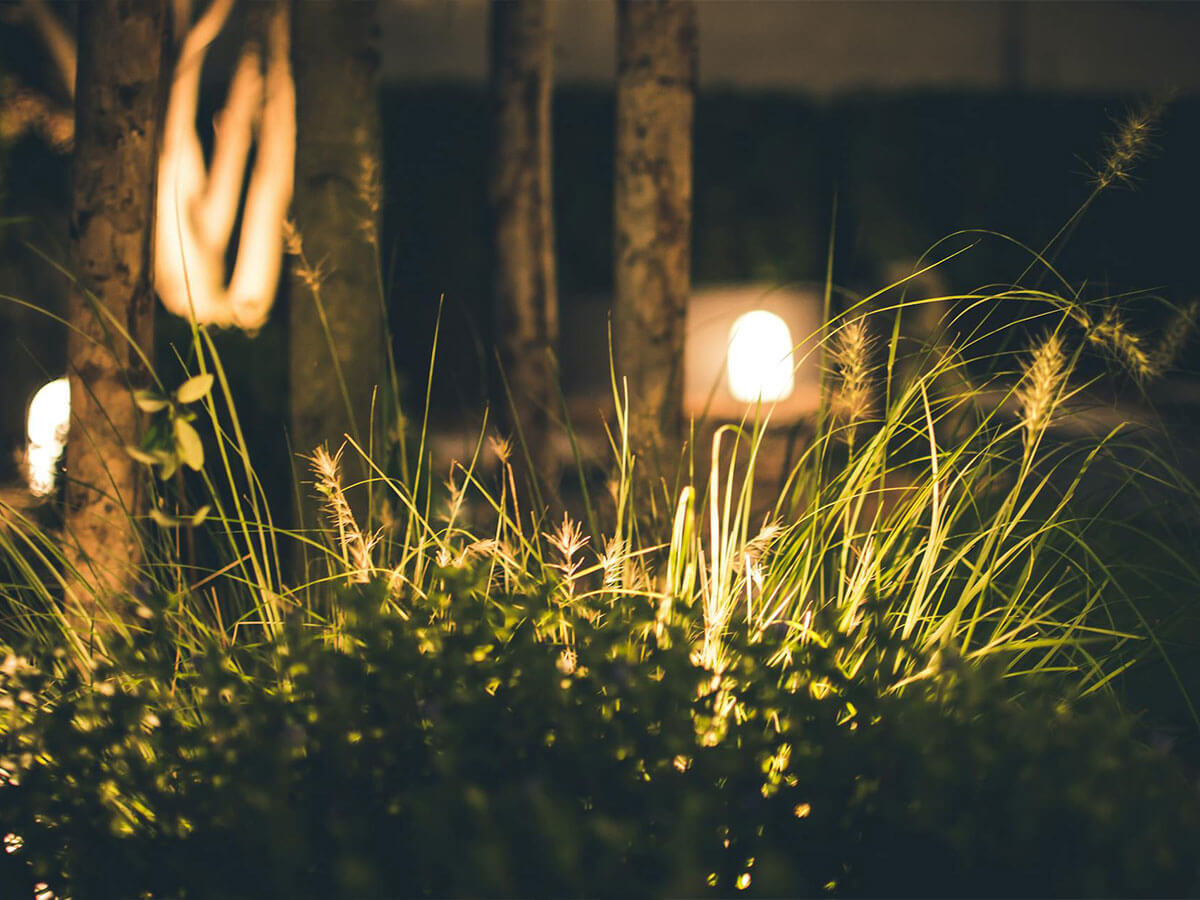As the cold of winter creeps in, the color and life of summer plantings begin to fade away. Long blooming perennials will eventually fade, lush leafy hostas will die back and you may soon be left with an empty lifeless garden.
But gardens don’t have to be lifeless and boring in winter… there’s an amazing variety of plants and clever tricks that can keep your garden looking green and serene — even in winter.
10 Inspiring design tips to enhance your small garden this winter!
Here are ten inspiring design tips to help your small garden look full of life — even through the winter months!
1. Choose Evergreens for Structure
Evergreens are the backbone of any winter garden, providing structure and greenery when other plants have gone dormant. Opt for compact varieties like dwarf boxwoods, junipers, or yews. These plants maintain their foliage all year, adding texture and depth to your garden even in the dead of winter.
Studies even show that evergreen plants can boost your mood in winter — especially in urban environments! When space is really tight, dwarf conifers are a perfect option.
Related Read | 6 Surprising Benefits of Evergreens in a Small Garden

2. Add Winter-Blooming Plants
Mixing a range of winter-blooming plants into your borders or containers can bring bursts of color and life to your garden during the colder months. You could also create your own winter hanging basket!
Winter flowering plants like hellebores, heaths, or winter pansies are especially perfect for containers. These hardy plants offer vibrant blooms that can brighten even the gloomiest winter day.

3. Use Vertical Space Wisely
Maximizing vertical space is always essential in a small garden. Install trellises, wall planters, or vertical garden systems to grow climbing plants or display pots.
Evergreen climbers like ivy or winter-flowering clematis can add vertical interest and create a lush, green backdrop. As well as year-round privacy!

4. Create Focal Points with Garden Ornaments
Garden ornaments can provide year-round interest and serve as focal points during winter if your garden is looking a little sparse. Decorative objects like statues, colorful plant pots or water features can be a nice addition.
Functional ornaments like birdbaths or feeders can look good while also attracting birds to your garden. Position them in eye-catching places so you can enjoy them from the warmth and comfort of your home. Even under a layer of snow, they can also add structure.

5. Add some seasonal veggies
Harvesting vegetables and fruits in summer is one of the most rewarding feelings a gardener can have. And this can continue into winter too!
Sow seasonal veggies in summer like garlic, broccoli, potatoes or winter cabbage so you can keep harvesting in winter. Depending on your area (e.g. if you get hit by heavy snow or frosty ground!) cool weather crops can be a great way to keep your garden producing through the winter.

6. Layer Your Plantings
Make sure to intersperse a variety of evergreens and winter flowering shrubs throughout your space. Plant taller shrubs or trees at the back, medium-sized plants in the middle, and ground covers or low-growing plants at the front. This makes sure every area of your garden has color and variety, and there won’t be completely bare borders or containers.
7. Use Raised Beds and Containers
Raised beds and containers are excellent for small gardens, providing flexibility and efficient use of space. If you go outside less in winter you can reposition your containers closer to windows so you can enjoy them from inside instead!
They also allow you to control soil quality and drainage, which is especially beneficial in winter if you get a lot of rain.

8. Create a Warming Atmosphere with Lighting
Lighting can transform a small garden into a magical space after dark — especially in winter when daylight is limited. Solar-powered path lights or lanterns can illuminate walkways and highlight key features.
Light always adds a cozy, inviting atmosphere — just make sure they’re ‘warm’ colored lights and not cool white or blue lights.

9. Add Texture with Hardscaping
Hardscaping elements like stone pathways, gravel areas, or wooden structures can add texture and visual interest to your garden. In winter, these elements stand out even more, providing contrast to the greenery and adding to the overall style. Make sure you choose materials that complement your garden’s style and are also durable enough to withstand winter conditions!
A few ideas to add texture and interest…
- A trellis with a winter flowering clematis
- Cover bare soil in your borders with a colorful gravel
- A wooden pergola or umbrella with string lights wrapped around the pillars and beams

10. Create Cozy Seating Areas
Even a small garden can benefit from a cozy seating area where you can enjoy the winter scenery. Choose weather-resistant furniture like a wrought iron bistro set or a wooden bench — just don’t forget the cushions and definitely a cosy blanket!
Surround your seating area with fairy lights, evergreens and winter-blooming plants to create a peaceful retreat where you can relax and take in the beauty of your garden.

Creating your own cosy winter garden…
Designing a small garden that remains beautiful and functional throughout the winter is all about thoughtful planning and creative use of space. By incorporating evergreens, winter-blooming plants, and clever design elements, you can transform your garden into a year-round oasis.
Remember, even the smallest garden can be a source of joy and inspiration during the colder months. Embrace the unique beauty of winter, and let your garden shine in every season.
Other winter posts you may like to read…
Wondering what else you can do with your small outdoor space this winter? I’ve pulled together some of our other winter posts to inspire you!
Garden projects and planning…
- 8 Winter DIY Projects for Small Spaces
- How to Plan Your Small Urban Garden for Spring During Winter
- How to Protect Your Container Plants from Frost
Winter planting ideas…





